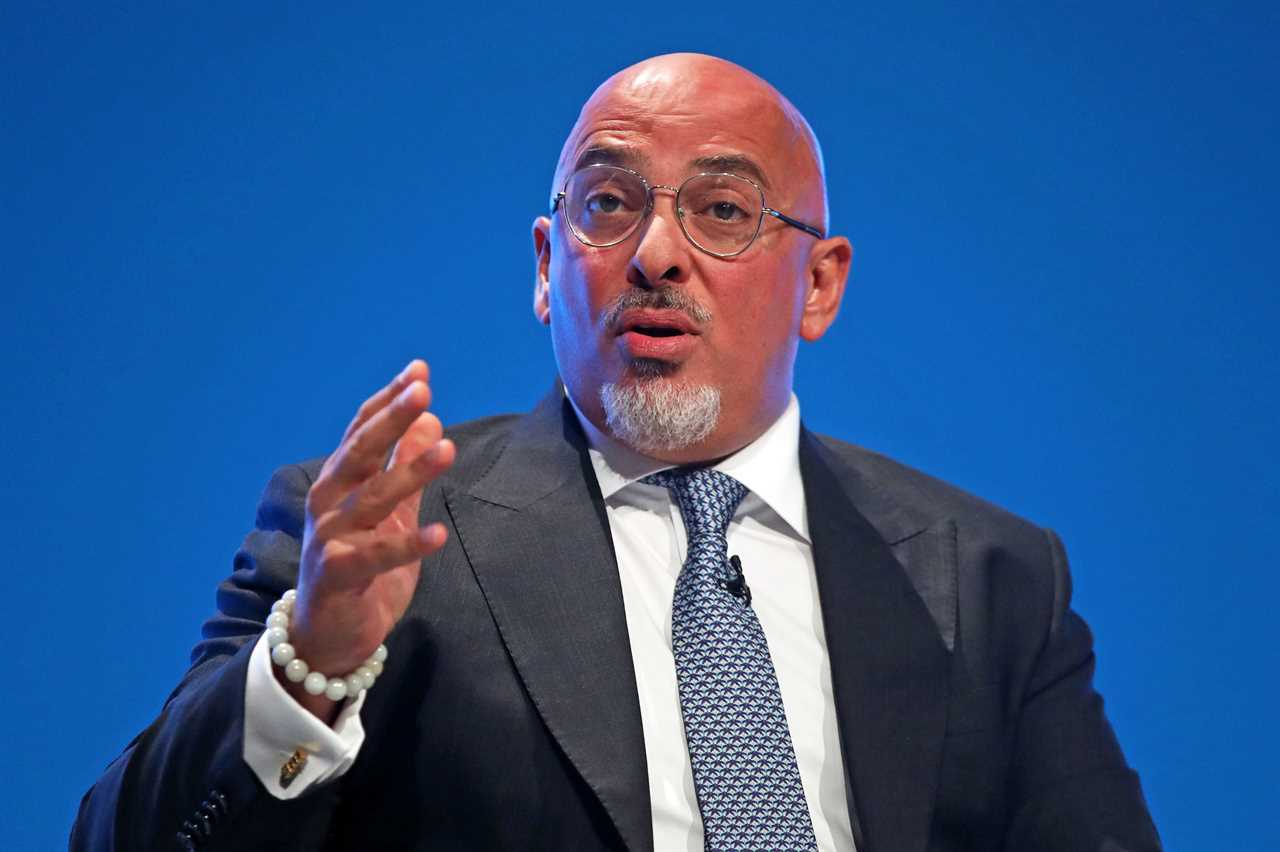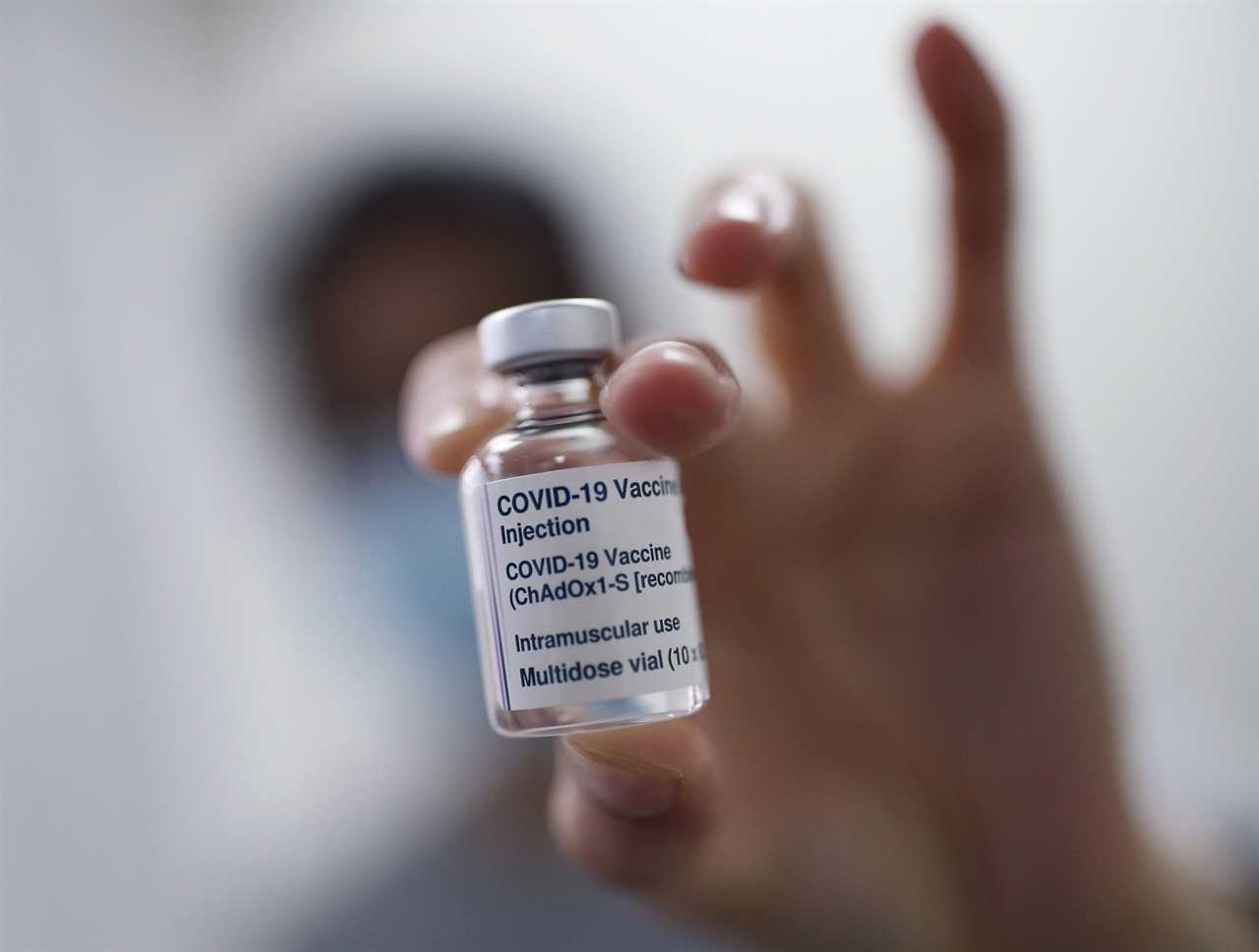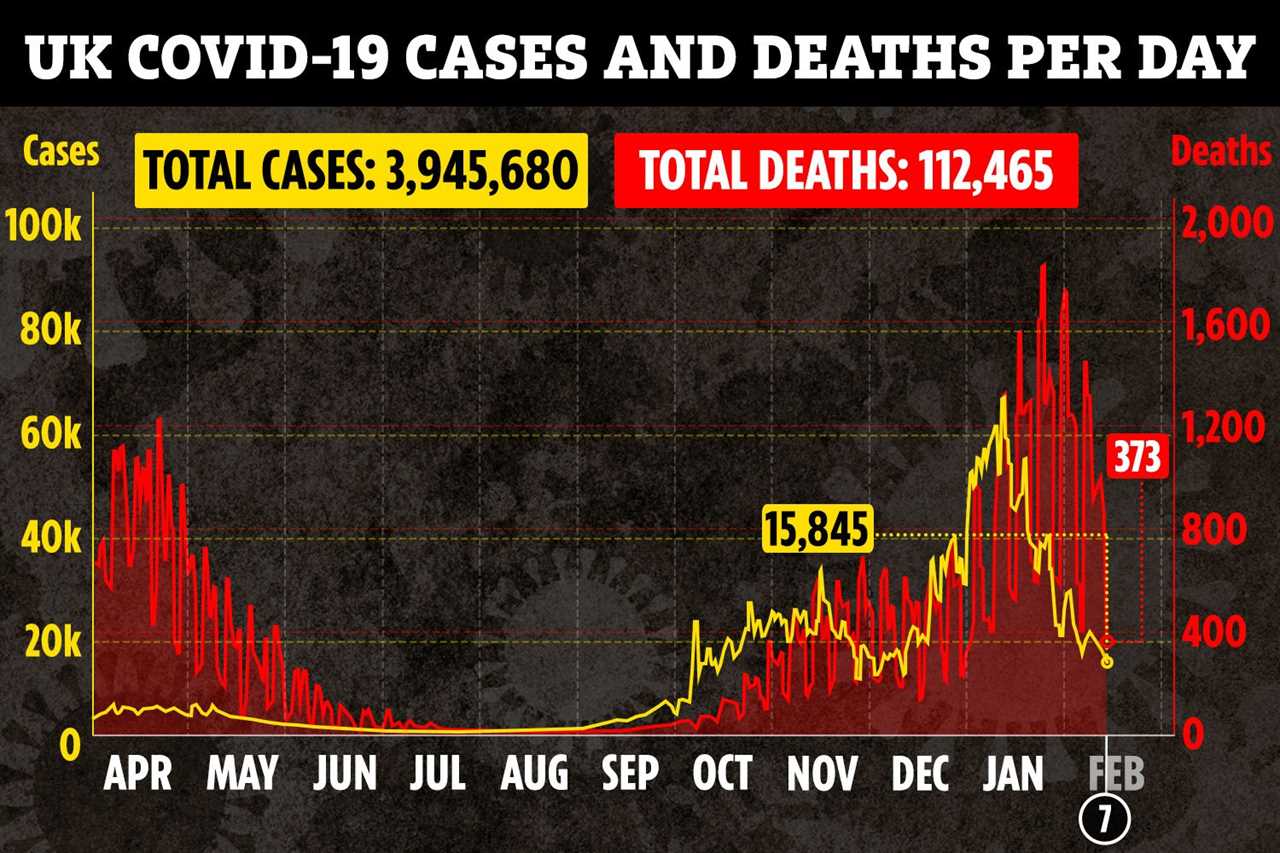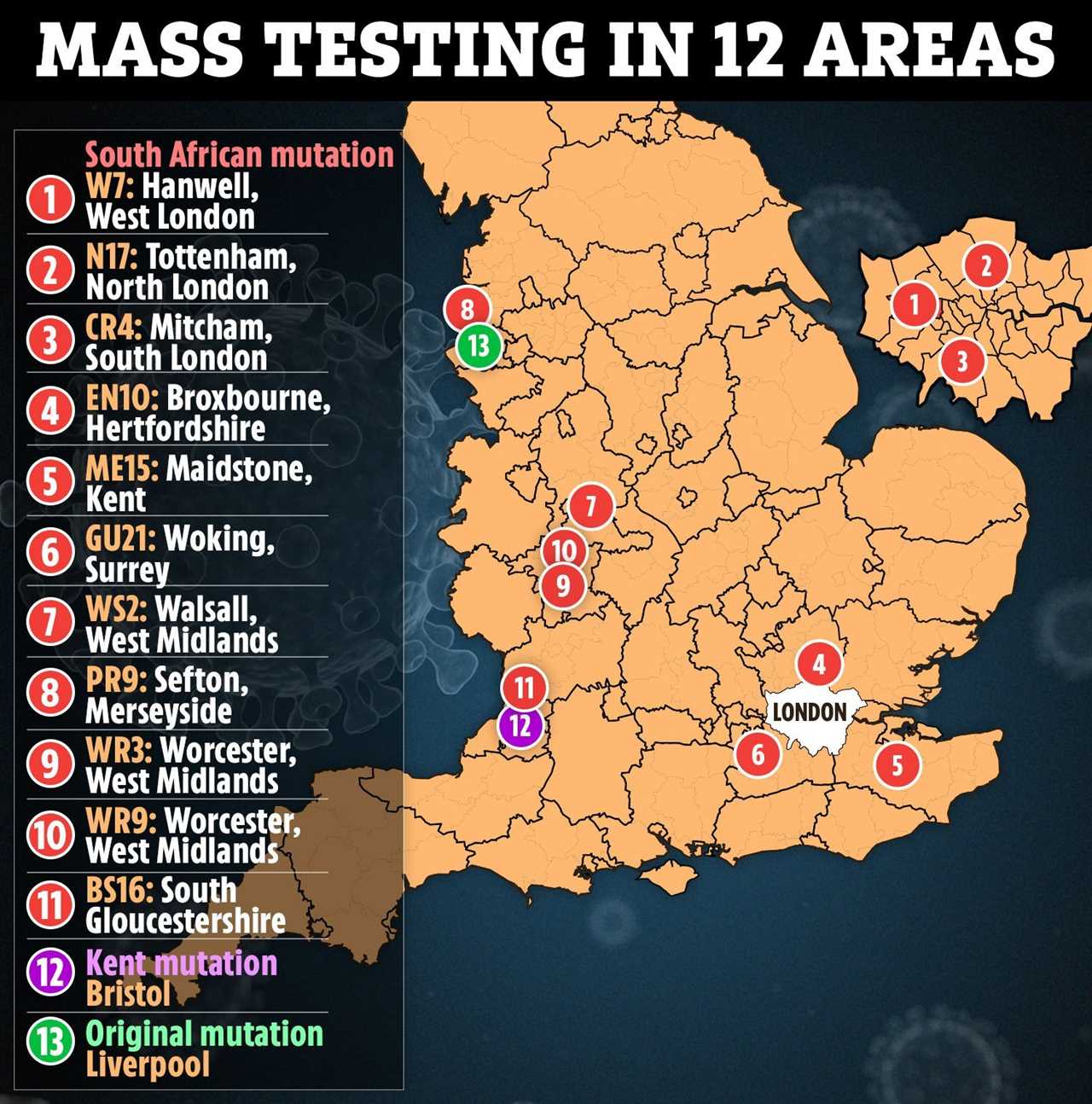A CORONAVIRUS jab which can beat the South African variant could be ready as soon as Autumn, scientists have said.
It comes as vaccine minister Nadhim Zahawi assured Brits that the Oxford jab would still prevent deaths – despite a study suggesting it was less effective against mild disease caused by the strain.

Read our coronavirus live blog for the latest news & updates


“Surge” testing is currently underway in twelve areas of the UK where the variant has been detected in a bid to contain the spread.
The study – conducted by South Africa’s University of the Witwatersrand and Oxford University – found that the jab “provides minimal protection” against moderate Covid-19 caused by the variant.
However, researchers still believe the Oxford vaccine is effective in preventing severe disease, hospital admissions and deaths, and also works well against the original coronavirus strain.
Writing in the Daily Telegraph today, Mr Zahawi said that the emergence of new variants was “worrying” – but stressed that the vaccines were still effective against the dominant strains.
He wrote: “We should bear in mind that recent studies show the vaccines being deployed right now across the UK appear to work well against the Covid-19 variants currently dominant in the UK.
“In terms of other variants, not in the UK, we need to be aware that even where a vaccine has reduced efficacy in preventing infection there may still be good efficacy against severe disease, hospitalisation, and death.
“This is vitally important for protecting the healthcare system.”
JAB HOPE
Mr Zahawi warned the country may need a rolling programme with annual jabs or a booster in the autumn to protect against the mutant strains.
Professor Sarah Gilbert, lead researcher in the Oxford team, said scientists were already tweaking the jab to respond to mutations – and a revised vaccine could be rolled out as soon as Autumn.
She told the BBC’s Andrew Marr show yesterday: “We have a version with the South African spike sequence in the works. It’s not quite ready to vaccinate people yet.
“It’s easy to adapt the technology, develop a new vaccine which will have to go through a small amount of clinical testing, not nearly the same amount as we had to go through last year.”


She added: “We’re already working on the first part of the manufacturing process in Oxford.
“That will be passed on to other members of the manufacturing supply chain, as we go through the spring, and it looks very much likely that we can have a new version ready to use in the autumn.”
South Africa, where the variant has become dominant, yesterday announced it would suspend plans to inoculate its frontline healthcare workers with the Oxford jab following the results of the trial.
The country received its first one million doses of the vaccine at the end of January ahead of a planned rollout to frontline health workers from the middle of February.
But health minister Zweli Mkhize last night revealed that the variant accounted for 90 per cent of South Africa’s cases, and warned more research would need to be done before the jab was rolled out.
Responding to the results of the trial, a spokesman for Astrazeneca highlighted that the neutralising antibody activity of the jab is equivalent to that of other Covid-19 vaccines that have demonstrated protection against severe disease.
They told the Financial Times: “In this small phase I/II trial, early data has shown limited efficacy against mild disease primarily due to the B.1.351 South African variant.
“However, we have not been able to properly ascertain its effect against severe disease and hospitalisation given that subjects were predominantly young healthy adults.”
The UK is currently on track to give out 15 million Covid jabs by Valentine’s Day as the rollout goes from strength to strength.
Nearly 1,000 vaccinations are now being done every minute, the Government said.
A total of 2,700 sites across the country are now rolling them out as quickly as they can — including 200 pharmacies, 250 hospital hubs, thousands of GPs, and 100 mass vaccination centres.






